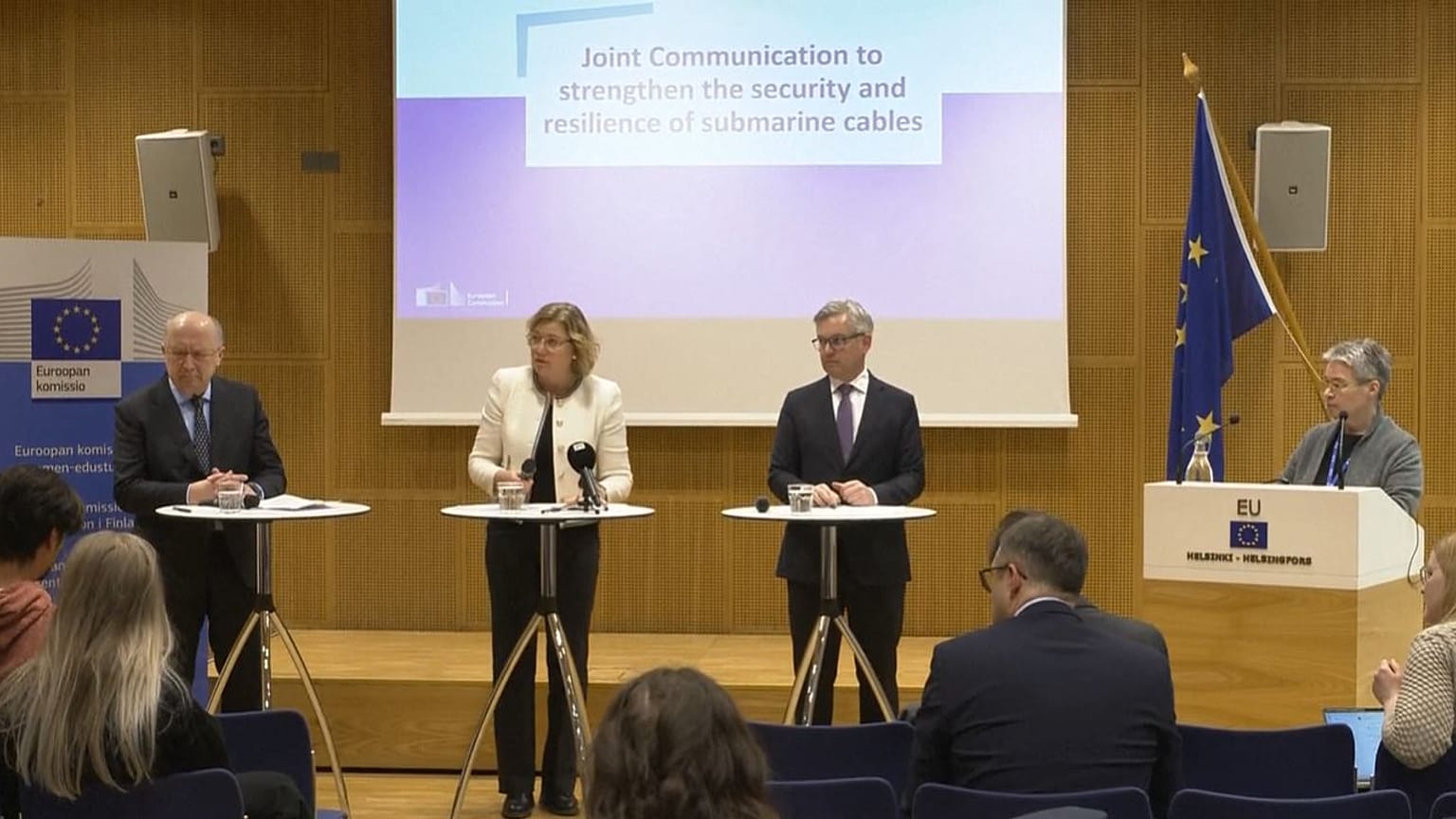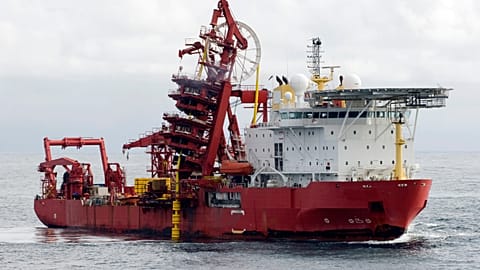Accidental breaks in these cables are common, but since the start of Russia's full-scale invasion of Ukraine, observers have noted that such incidents have increased.
The European Commission on Friday called for the development of more resilient cables as it outlined its plan to protect undersea critical infrastructure following multiple acts of sabotage on submarine cables in the Baltic Sea.
The plan, prepared "with urgency in mind", is built on four pillars - prevention, detection, response, and deterrence - to ensure the European Union is prepared for the worst, Henna Virkkunen, the Commission's executive vice-president for digital said from Helsinki.
The EU executive called for the development and funding of new, more resilient cables that are better able to withstand attacks and for greater cooperation at both the European and international levels to spot suspicious activities, detect incidents earlier, and ensure faster repair.
Undersea cables are of crucial importance, with communication cables linking citizens through internet access and electricity cables allowing member states to integrate into shared energy markets.
Accidental breaks in these cables are common, but since the start of Russia's full-scale invasion of Ukraine, observers have noted that such incidents have increased and are less likely to be accidental, with Moscow the presumed culprit in a number of them.
"These incidents have the potential to disrupt vital services to our society (...) and it carries a security risk," Virkkunen said.
She also supported the creation of a joint cable surveillance mechanism, which will soon be tested in the Baltic Sea.
When it comes to deterrence, the Commission emphasised that sanctions and diplomatic measures should be part of the arsenal.
Last December, the EU’s External Action Service announced measures against Russia's so-called "shadow fleet" of oil tankers that allow Moscow to circumvent a Western ban on imports of Russian sea-borne oil and that is suspected of damaging electricity and data cables in the Baltic Sea.
By the end of 2025, the Commission and the High Representative for Foreign Affairs will present a map of submarine cables, a coordinated risk assessment, a Cable Security Toolbox, and a priority list of key cable projects.


















